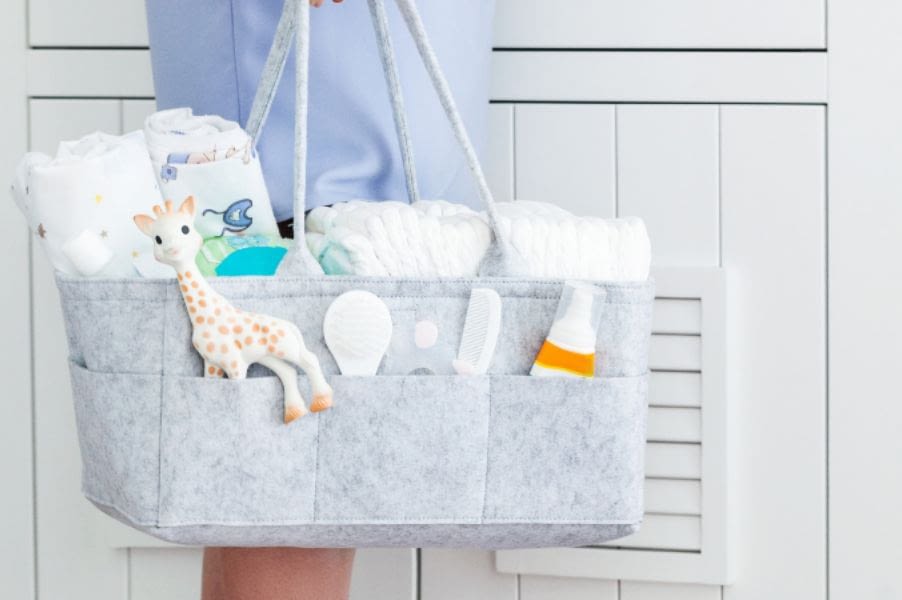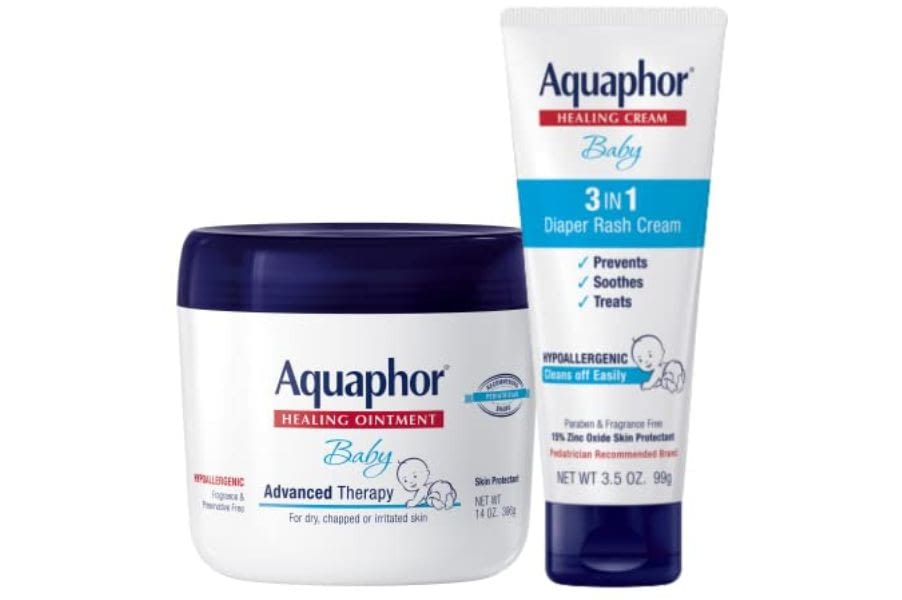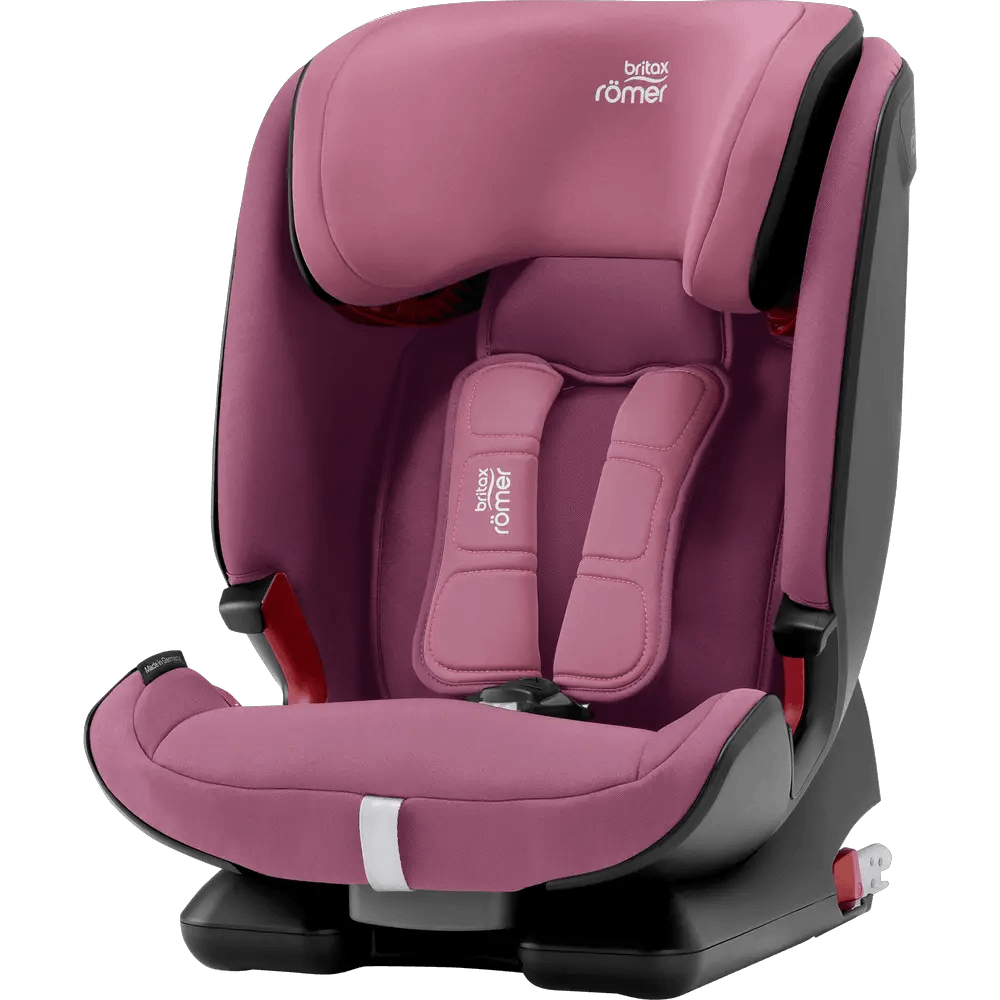As parents, we often find ourselves in a constant cycle of changing diapers, especially during the night. However, there comes a time when our little ones start growing and developing, and we begin to wonder when to stop changing diapers at night.
In this detailed guide, we will explore various factors to consider, signs of readiness, and practical tips to help you determine when it’s time to bid farewell to those nighttime diaper changes.
What age to stop diapers at night?
When changing diapers at night, it is recommended that you stop once your baby reaches a certain age or weight. Generally, this happens when your baby is around 12 months old and weighs more than 16 pounds (7.3 kg).
However, since every child develops differently, you may find that your baby can go longer without needing a nighttime diaper change. If this is the case, you can adjust your routine accordingly.
Additionally, if your baby has a heavy wetter, you may need to change diapers at night until they are closer to 18 months or heavier than 20 pounds (9 kg).
New parents must consider that their bladder control will improve as their baby ages. If a baby is not regularly wetting through their diaper at night, it may be time to consider potty training. A key indicator that your child is ready for potty training is if they can stay dry for two consecutive nights.
Related: How To Prevent Diaper Leaks At Night?
When to stop changing diapers at night?
The best way to determine when to stop changing diapers at night is to pay attention to your baby’s needs and progress. With patience and practice, you can successfully help your baby transition out of diapers and into underwear.
Understanding Nighttime Diaper Changes
Nighttime diaper changes are a common practice during the early stages of a child’s life, primarily driven by the need to ensure comfort and hygiene. Infants have little control over their bladder and bowel movements, and frequent diaper changes become necessary to prevent skin irritation, discomfort, and potential diaper rash. However, as your child grows, their ability to control their bladder also develops.
Assessing Developmental Milestones
One crucial factor to consider when deciding to stop changing diapers at night is your child’s developmental milestones. Around 2 to 3 years old, many children start displaying signs of readiness for nighttime potty training. These signs can include:
- Consistently waking up with a dry diaper.
- Demonstrating awareness of their bodily functions.
- Showing an interest in using the potty or toilet.
- Exhibiting improved bladder control during the day.
Evaluating Sleep Patterns
Another crucial aspect to consider is your baby’s sleep patterns. If your baby consistently sleeps through the night without waking up due to a wet diaper, it may indicate that their bladder has matured enough to hold urine longer. This is a positive sign that they may be ready to transition to nights without diaper changes.
Communication and Language Skills
Effective communication is essential when determining your child’s readiness to stop nighttime diaper changes. If your child has developed sufficient language skills and can communicate their needs, it becomes easier to understand their preferences and readiness for potty training. Look for signs of your child expressing discomfort or indicating they need to use the toilet at night.
Gradual Transition to Nighttime Training Pants
When your child is ready to avoid nighttime diaper changes, consider transitioning to nighttime training pants or pull-ups. These specially designed pants offer increased absorbency compared to regular diapers, allowing your child to feel more independent and confident while still providing some protection against accidents.
Related: When to Switch From Diapers to Pull Ups?
Nighttime Routine Adjustments
Adjusting your child’s nighttime routine can also support transitioning from nighttime diaper changes. You can encourage your child to use the potty or toilet before bedtime and consider limiting their fluid intake closer to bedtime to minimize the likelihood of accidents during the night.
Bedwetting and Patience
It’s important to note that every child develops at their own pace, and bedwetting accidents can occur even after transitioning away from nighttime diaper changes. It’s crucial to approach this transition with patience and understanding. Bedwetting is common, and it’s essential to support your child emotionally during this process, offering reassurance and guidance.
Consulting with a Pediatrician
Consulting with your child’s pediatrician can provide valuable insights if you have concerns or questions about when to stop changing diapers at night. They can assess your child’s overall development, offer guidance tailored to your child’s specific needs, and address any underlying medical conditions affecting their ability to stay dry at night.

Are overnight diapers necessary? When do you start using overnight diapers?
Overnight diapers are typically used when your baby has begun sleeping through the night or at least for longer than usual. This is usually sometime after your child reaches six months old but varies from baby to baby.
So, are overnight diapers necessary? Yes, Not only are they designed to hold more, but their extra absorbent materials, such as cotton or bamboo, in combination with breathable waterproof layers, will ensure that your little one is kept dry and comfortable throughout the night.
Additionally, some brands offer special features like leg cuffs and wetness indicators to make it easy to tell when a diaper needs to be changed or replaced. Finally, when selecting an overnight diaper, it’s essential to consider the fit and comfort of your baby since different brands may fit differently.
Generally speaking, an overnight diaper should provide a snug but comfortable fit that won’t leave red marks or cause any irritation to your baby’s delicate skin. Pay close attention to how long your child sleeps and how much their diaper can hold before deciding when to switch to overnight diapers.
You may need them sooner than expected due to heavy wetting or if they tend to sleep in one position for many hours at night.
If you notice any leaks or wake up with a damp bed, it’s probably time to transition into an overnight diaper. Overnight diapers provide more absorbency and padding, which will help keep your baby dry and comfortable throughout the night so they can get the restful sleep they need.
How often to change a newborn diaper?
Bringing home a newborn baby is a joyous time for parents. Amidst the joy, it’s important to remember that caring for a newborn involves understanding their basic needs, such as feeding, sleeping, and diaper changing.
Diaper changing, in particular, is a routine task that requires attention and proper care. Consider these factors that influence how often should you change newborn diaper at night?
- Newborns usually require changing up to 10-12 times a day or more if they are experiencing diarrhea.
- You will know it is time for a diaper change if you notice that it is full or your baby has had a bowel movement.
- Check the diaper frequently when your baby wakes up from a nap, after feeding, and before bedtime.
- Keep your baby clean and dry to help prevent diaper rash.
- When changing diapers, ensure you have all the necessary supplies ready, such as diapers, wipes, ointment, and fresh clothing.
- Be sure to thoroughly clean your baby with each diaper change, including between creases in skin folds and around the genitals.
- Lastly, apply ointment before putting on a new diaper to protect your baby’s skin from irritation. Be sure to check the expiration date of the ointment and replace it if needed.
Should you change your diaper before or after feeding?
It depends on your baby’s individual needs. Some babies may need to change diaper at night feeding, while others may be fine after eating. It is best to observe your baby’s cues and find out what works best for them.
Generally, it is recommended that you first feed your baby and then change their diaper if necessary, as this will help keep them comfortable during the meal. Additionally, changing the diaper before feeding can irritate delicate areas from wetness or messes that could make your baby uncomfortable during eating.
However, if your baby has soiled their diaper right before feeding time, you should change it first since leaving a dirty diaper on too long can lead to a rash. Ultimately, the best way to decide when to change your baby’s diaper is by observing them and responding to their cues.
Should I wake my baby to change a poopy diaper?
As a new parent, it’s natural to be concerned about your baby’s comfort and hygiene, even during sleep. One common question is whether you should wake your baby to change a poopy diaper or how long can a baby stay in a poopy diaper?
- Consider the Degree of Discomfort: Consider the discomfort your baby experiences due to a poopy diaper. Some babies are more sensitive to wetness and may become agitated or fussy when their diaper is soiled.
- Assess the Risk of Diaper Rash: How long can you leave a wet diaper on a newborn? Diaper rash is a common concern for babies, and leaving a poopy diaper on for an extended period can increase the risk of developing this uncomfortable condition. Suppose your baby has sensitive skin or has experienced diaper rash. In that case, waking them and changing the diaper promptly, even during sleep, may be advisable to prevent irritation and potential infection.
- Prioritize Sleep Routine: A consistent sleep routine is crucial for your baby’s well-being. Waking them up unnecessarily to change a poopy diaper can disrupt their sleep pattern and make it challenging for them to fall back asleep. Suppose the poopy diaper doesn’t cause significant discomfort or pose an immediate risk. You might consider changing it during the next scheduled feeding or when your baby naturally wakes up.
- Trust Your Parental Instincts: As a parent, you know your baby best. Trust your instincts and rely on observing your baby’s behavior and cues. Notice that your baby is consistently uncomfortable or develops diaper rash due to prolonged exposure to a poopy diaper. It may be necessary to wake them and change it promptly, even if it interrupts their sleep.
Whether to wake your baby to change a poopy diaper during sleep depends on your baby’s sensitivity to wetness, sleep patterns, and the risk of diaper rash. It’s essential to prioritize your baby’s comfort and well-being while considering the need for a consistent sleep routine. By finding a balance and trusting your parental instincts, you can make the best decision for your baby’s needs.
Read Also: Pull Ups vs Diapers?
Conclusion: When can you stop changing diapers at night?
Deciding when to stop changing diapers at night is a significant milestone in your child’s development. By considering factors such as developmental milestones, sleep patterns, and communication skills and gradually transitioning to nighttime training pants, you can make an informed decision that suits your child’s readiness.
Remember to be patient and supportive during this transition, and consult with your pediatrician if you have any concerns. Every child possesses their uniqueness, and by offering appropriate support and guidance, you can assist your young one in attaining independence during the nighttime.
1 Visit today





